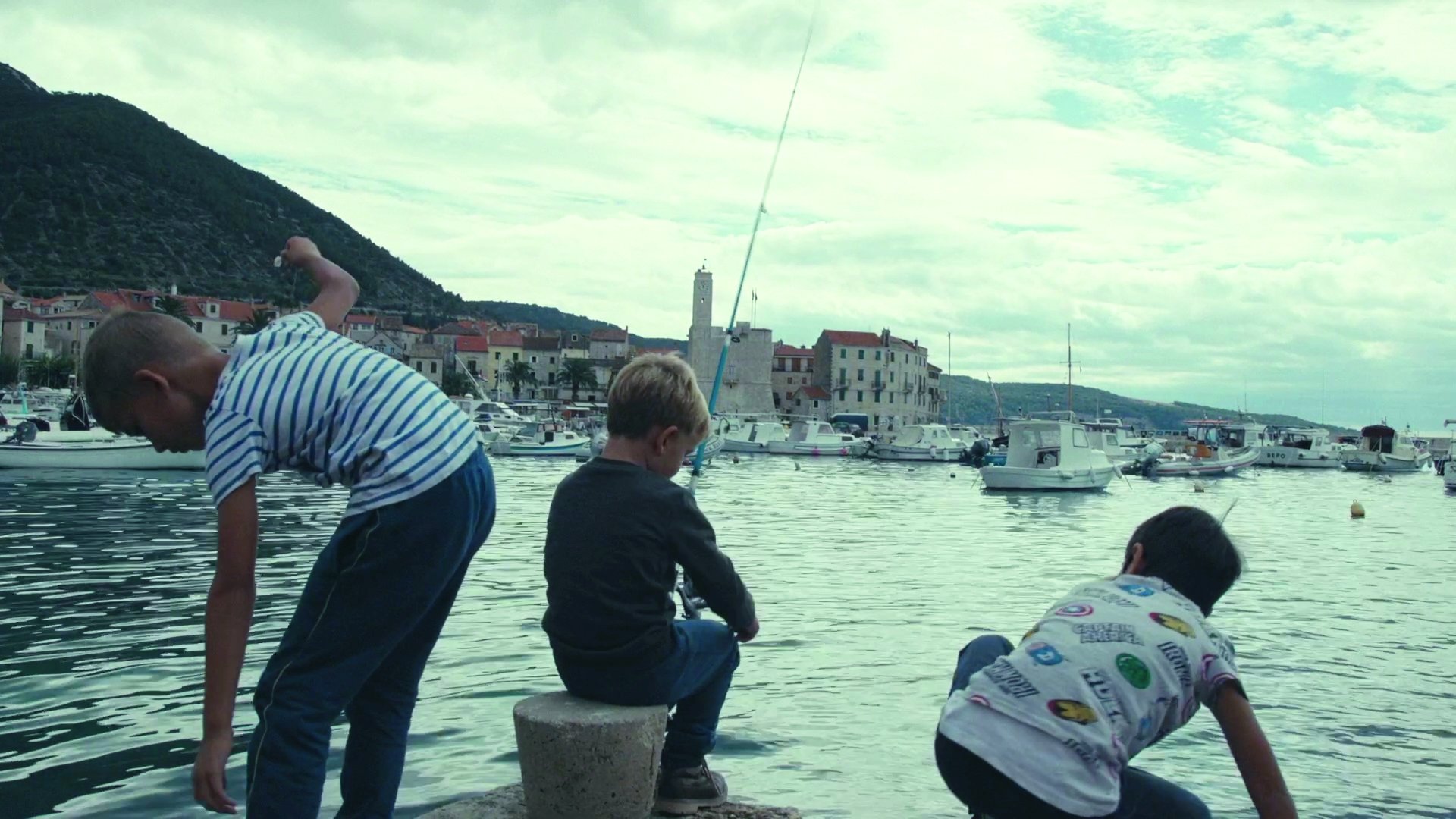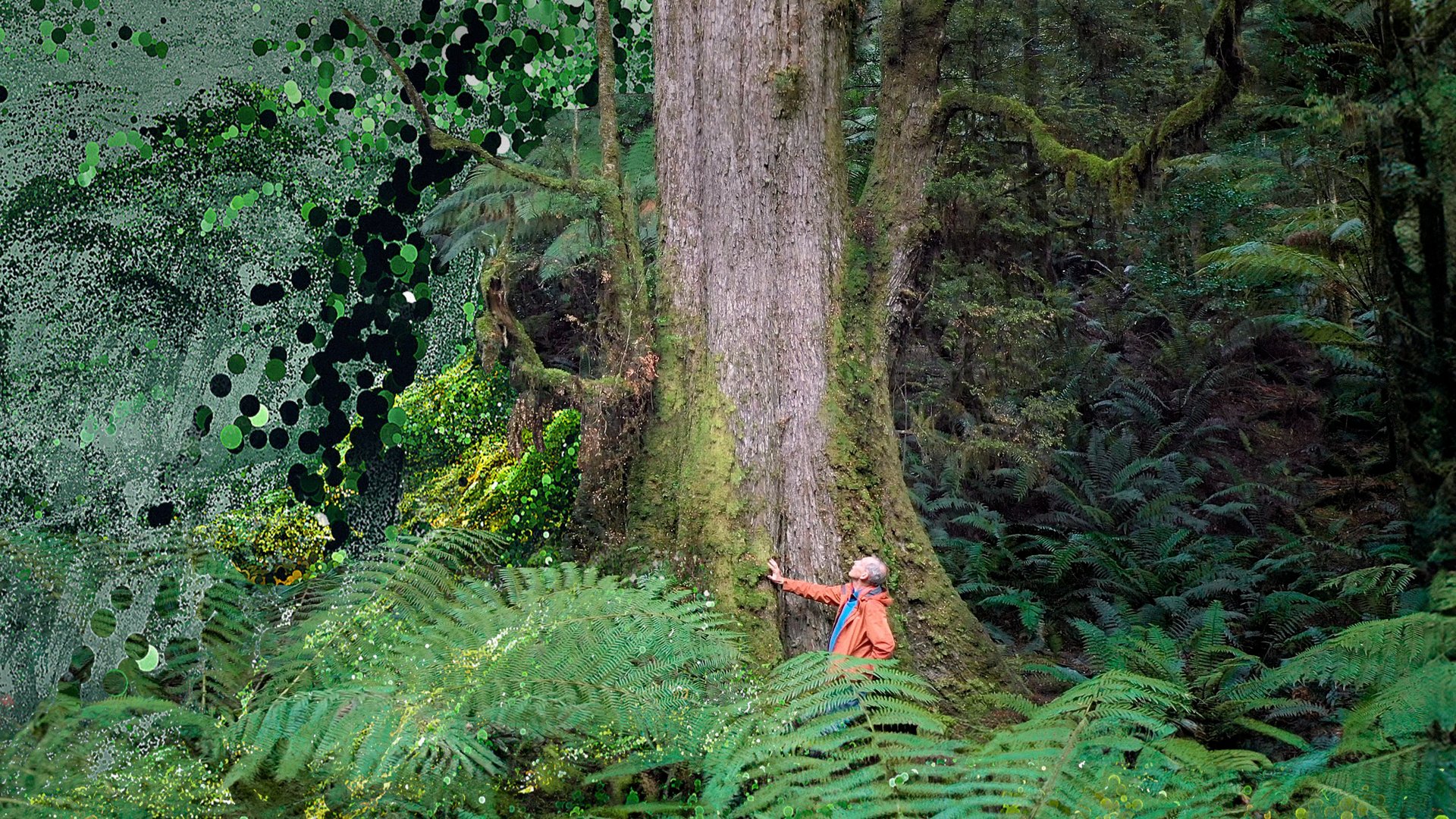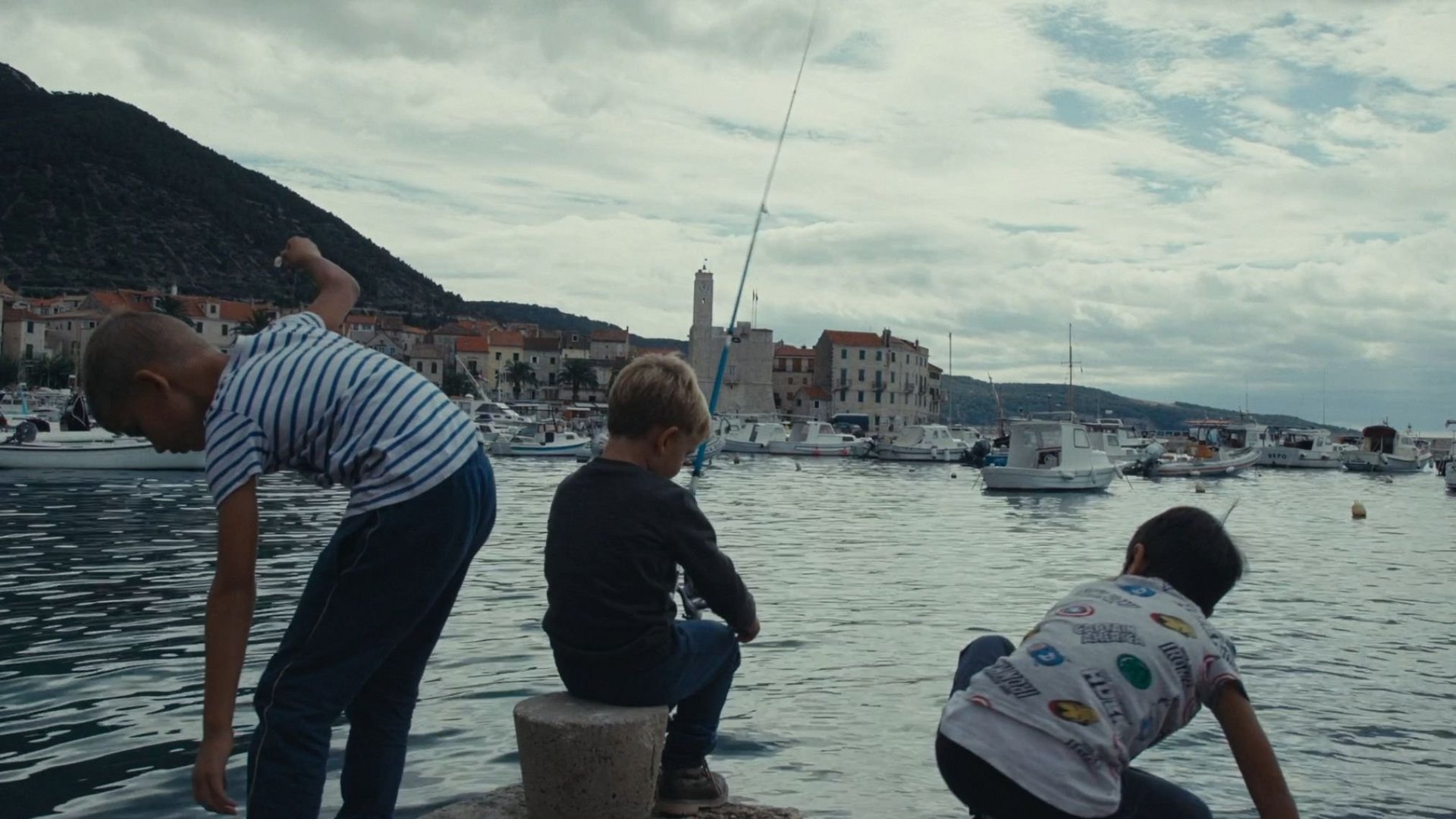
© Filmstill "The Tempest of Neptun"

© Filmstill "The Tempest of Neptun"
The Tempest of Neptune is a cinematic mosaic that tells the story of life on the remote island of Vis from different perspectives. Various characters face society's eternal dilemma: tradition or progress. From fishermen and activists to the mayor and a foreign investor, each brings their views as tensions rise between those pushing for tourism expansion and those advocating for sustainability.
As the opening text in the documentary The Tempest of Neptun says, Neptune was the Roman God of fresh water and the sea, who controlled the winds and storms. For someone in the modern age, such descriptions of the ancient Gods might seem naive, but one thing could never be taken away from them—they had a human face and a human soul, with all its virtues and faults. In other words, they had human DNA.
For years, decades, and even centuries, human DNA has circulated through a facility bearing the name of the ancient God on the coast of the Adriatic Sea. The Neptun fish processing factory on the Croatian island of Vis has seen and survived a lot—the rise of industrialization, the creation of nation-states, the outbreaks of world wars, the rise and fall of socialist Yugoslavia … But it didn’t survive the transition to modern capitalism.
Today, the factory—where generations of people from the island of Vis have spent their entire working lives, a place that, for decades, was a symbol of the island’s economic recovery—has fallen into ruin, a series of empty rooms and bare walls bearing only a few traces of human presence and existence.
The once powerful Neptun is now owned by foreign investors from the West who, in agreement with the mayor and local authorities, are building endless hotels and new tourist facilities on the island, despite their activities causing problems for the local population,who are trying, mostly unsuccessfully,to preserve at least some from their old customs and way of life.



And this might have been just another story about the relentless gentrification and constant spread of mass tourism being faced by many cities and countries today, but The Tempest of Neptun reveals, or perhaps simply reminds us of, another, deeper dimension to the problem—the dominance of those who have the power to change other people’s lives so easily, to erase cultures, histories, and even the smallest traces of former existences and ways of life.
The sense of superiority felt by the self-proclaimed torchbearers of progress and their supposed moral supremacy over those whose lives they alter is a much bigger problem and a much more dangerous phenomenon, which, as history has repeatedly shown, has birthed some of the worst ideologies and agendas that humanity has ever seen.
These feelings of superiority and supremacy have different faces in Europe today, from the very obvious ones promoting hatred to the much more subtle ones masked by the ideology of progress. Examples of the latter include endeavours to turn Europe’s poorest countries into mining colonies that serve the needs of Europe’s ‘environmentally conscious’ powers, and the new and proudly announced introduction of Orwellian controls at EU borders for European citizens outside the Schengen zone … as well as the attitude that all the natural beauty to be found in our cities, villages, and neighbourhoods belongs to those progressive torchbearers who, unlike ordinary locals, know exactly what life in regional areas should look like.
The Tempest of Neptun is a cinematic mosaic that presents various perspectives to open up a discussion about life on the remote island today. It is a discussion that allows the voices of those we rarely hear to be heard, voices that remind us of the wisdom acquired and ways of life practised over centuries that are slowly, or all too quickly, disappearing. For the soul of humanity, it is crucial for some of that wisdom to survive in real life and not just in documents and documentaries—carrying forward the spirit of the old Gods with human DNA, like Neptune.